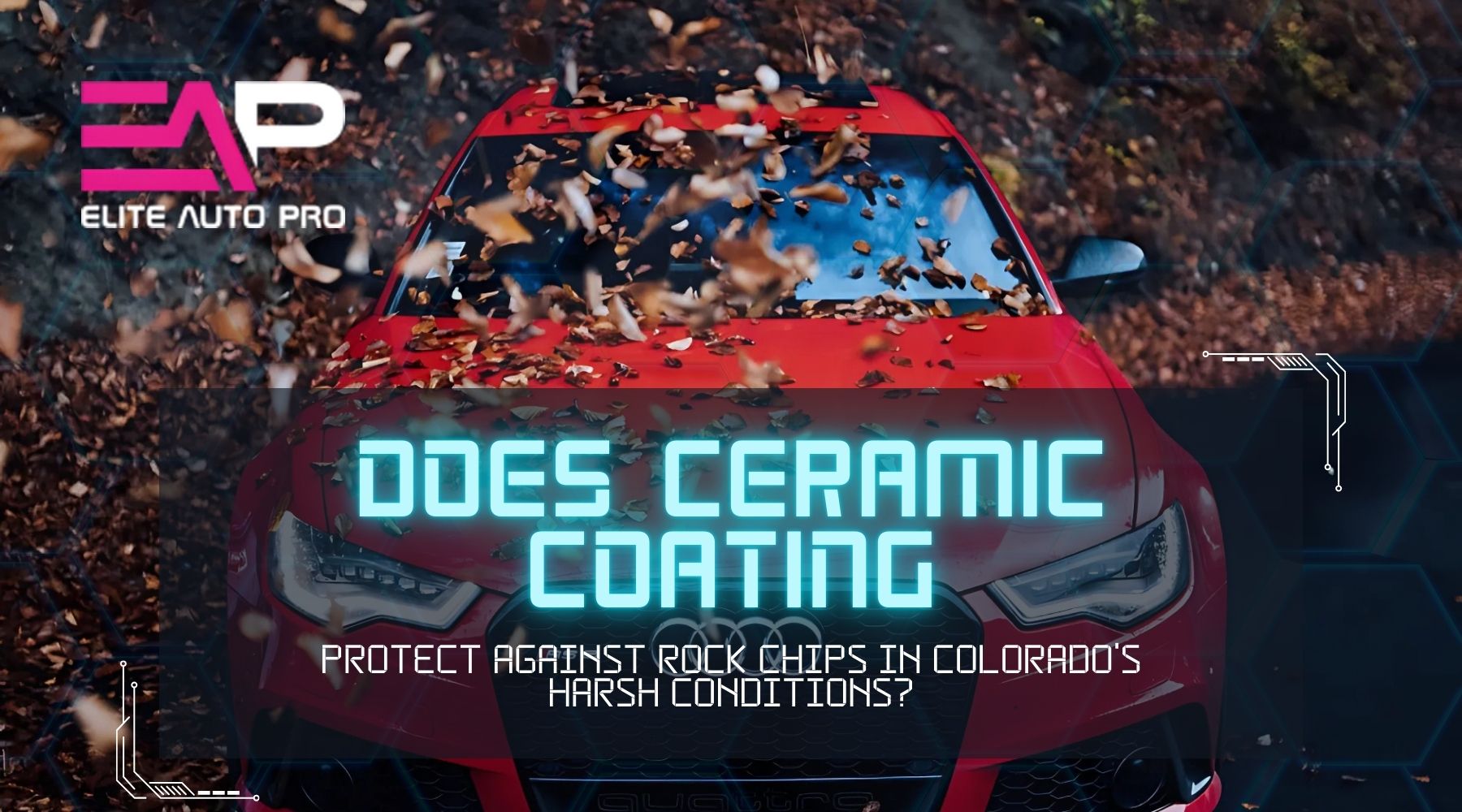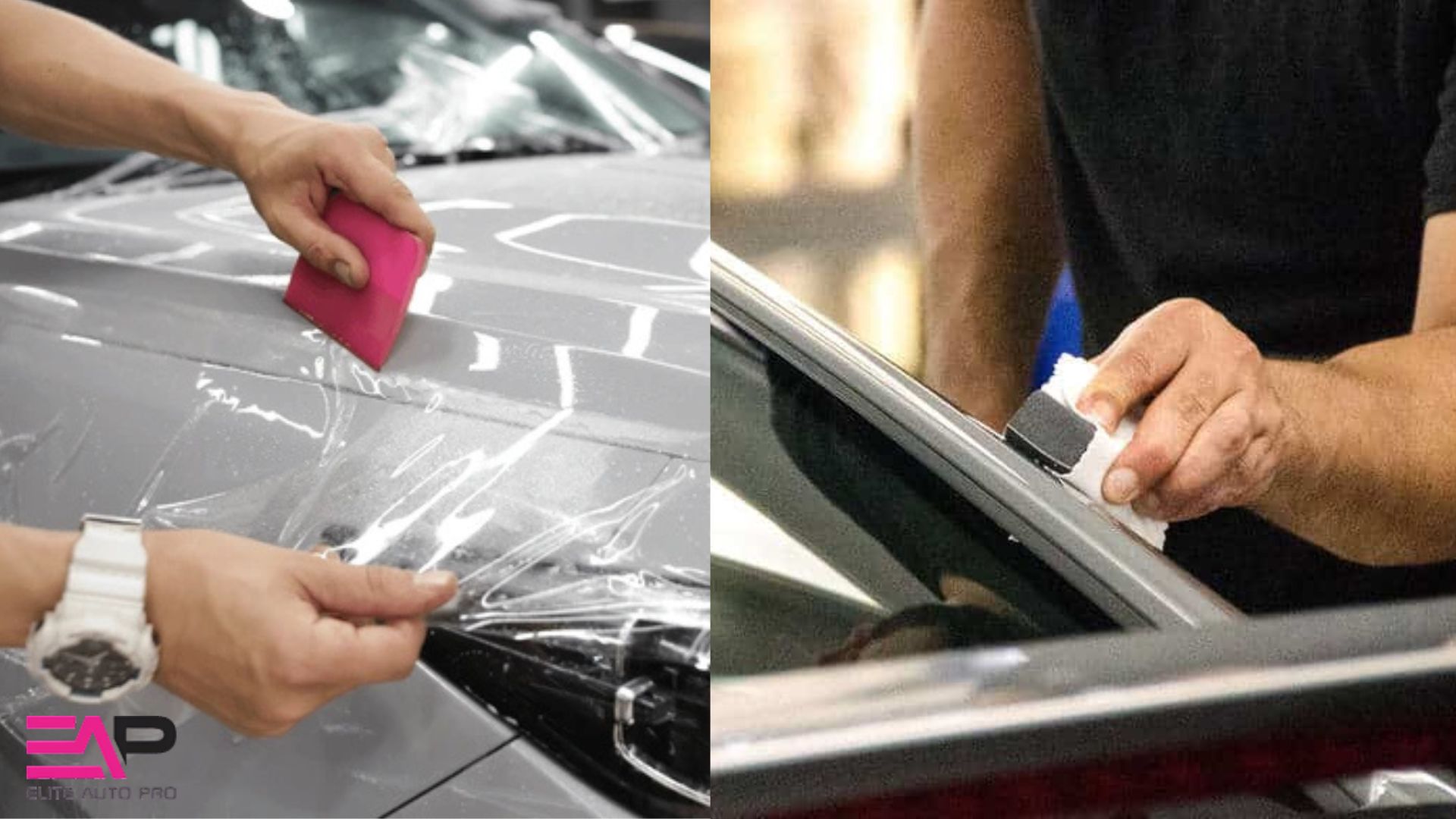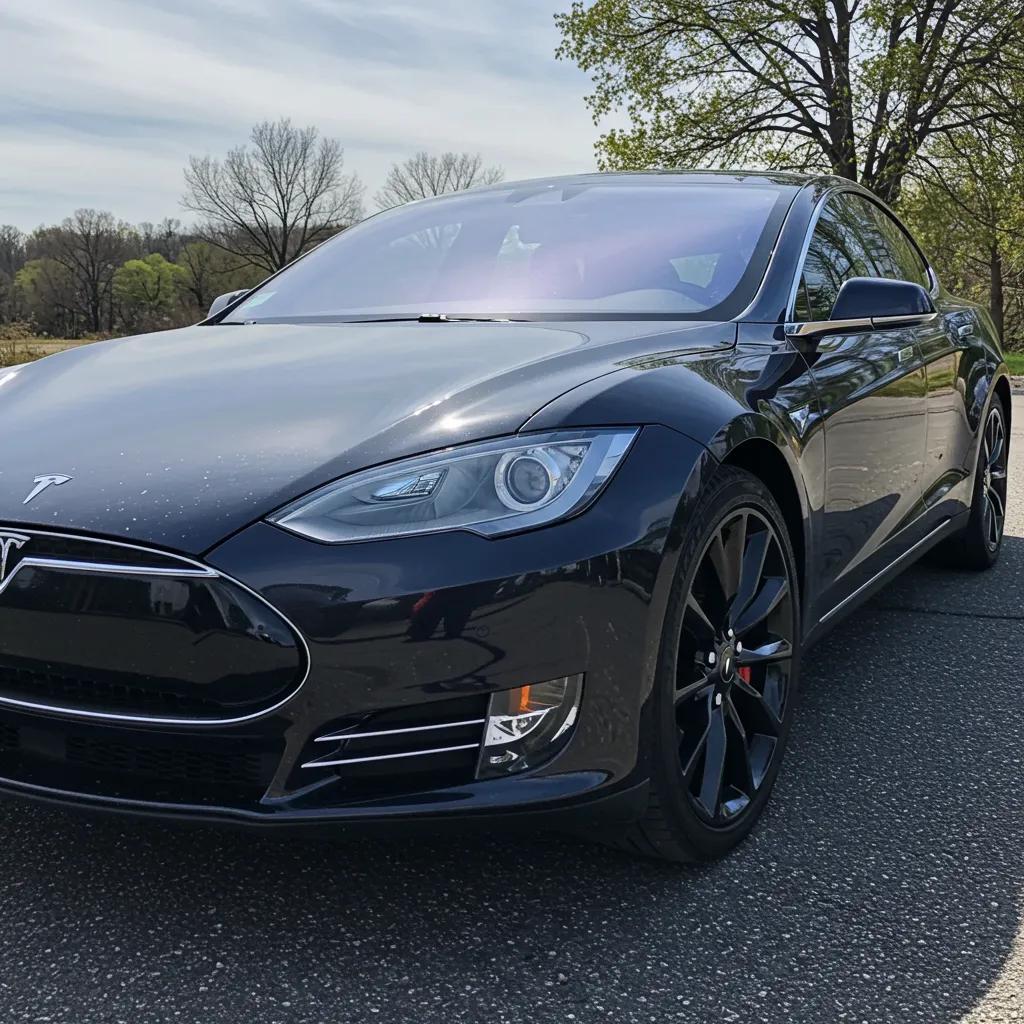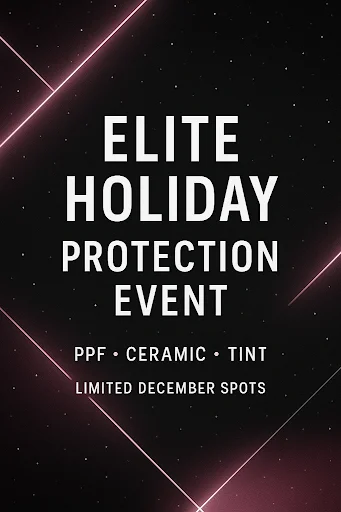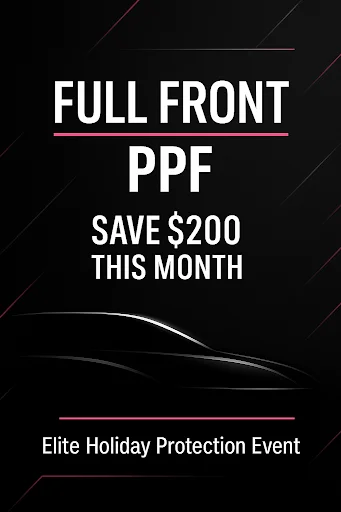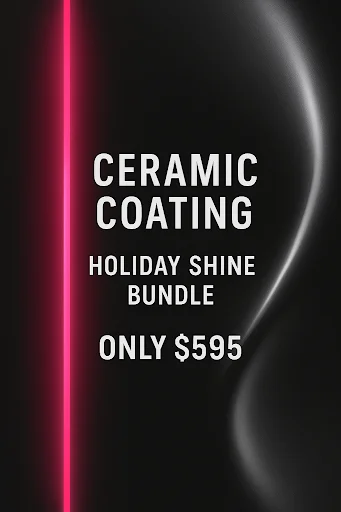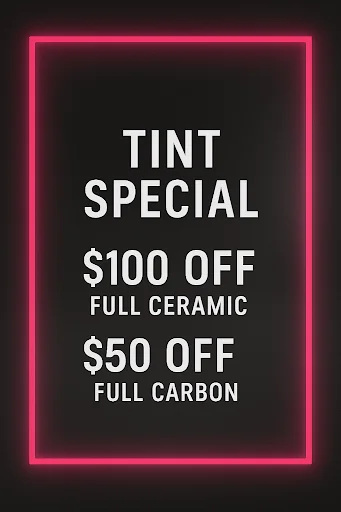Driving through Colorado’s beautiful but rugged terrain is a privilege, until your car’s paint pays the price. Whether it’s loose gravel flung up on I‑25 or sand from mountain roadways, rock chips are a constant concern for Colorado Springs vehicle owners. One of the most common questions we hear at Elite Auto PRO is: Does ceramic coating protect against rock chips?
The short answer? Not really.However, the full story involves understanding what ceramic coating is designed to do, what it can’t do, and why combining it with other protective solutions, such as Paint Protection Film (PPF), offers the best long-term defense, especially in Colorado’s harsh environment.
Let’s break it down.
What Ceramic Coating Actually Does for Your Car
Ceramic coating is often hailed as a “magic shield” for car paint, but the reality is more nuanced. It’s a liquid polymer applied by hand, which chemically bonds with your vehicle’s clear coat to form a hard, slick, hydrophobic surface. While it doesn’t make your car invincible, it offers a strong layer of protection against environmental hazards and everyday wear.
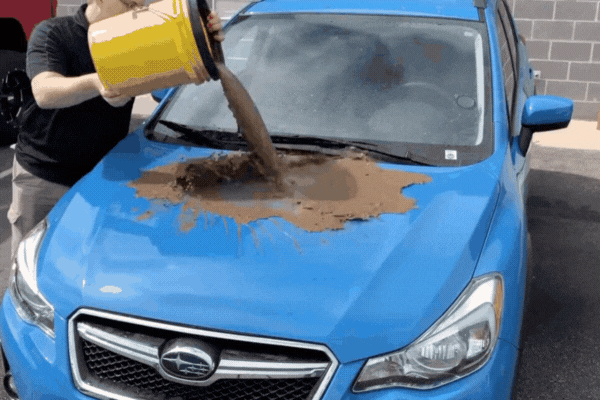
Benefits of Ceramic Coating Include:
- UV and Oxidation Protection
Constant sun exposure, especially in high-altitude areas like Colorado Springs, can cause paint to fade and degrade. Ceramic coating acts like sunscreen, preserving your vehicle’s vibrant finish over time.
- Hydrophobic Properties
Water beads up and rolls off effortlessly, carrying dirt and debris with it. This not only keeps your vehicle cleaner between washes but also makes washing and drying quicker and more effective.
- Resistance to Minor Abrasions
It won’t stop deep scratches or rock chips, but it does help minimize light swirls and micro-marring from routine washing or dust contact.
- Chemical Protection
Bird droppings, tree sap, bug splatter, and even harsh road salts won’t etch into your clear coat as easily, giving you more time to clean without worrying about permanent damage.
- Enhanced Gloss and Depth
One of the most noticeable perks, ceramic coating dramatically enhances the paint’s gloss, giving your car that deep, wet-look shine that lasts.
- Longevity with Proper Care
A professionally installed ceramic coating can last 2–5 years or more, depending on the product, care routine, and driving conditions.
Yes, ceramic coating is beneficial for your car, especially if your goal is to preserve its beauty, ease maintenance, and protect against chemical and UV damage.
Does Ceramic Coating Protect Against Rock Chips?
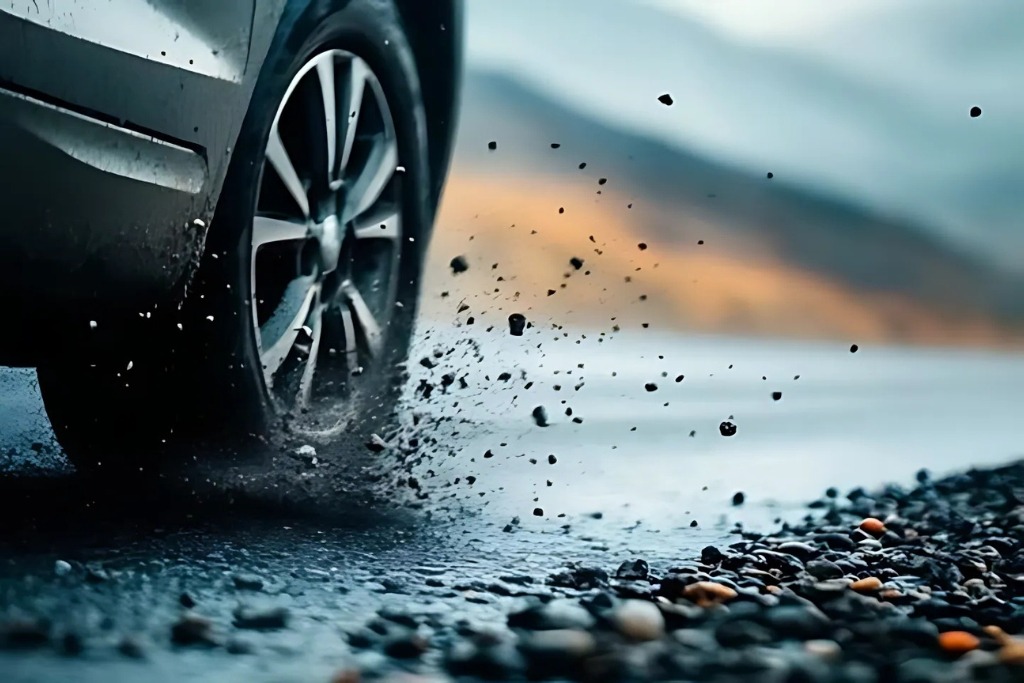
Here’s the truth: ceramic coatings do not stop rock chips.
Despite their impressive hardness and durability, ceramic coatings are only microns thick, far too thin to absorb or deflect the high-speed impact of rocks, gravel, and road debris. They form a protective shell against environmental elements but lack the physical cushion needed to handle direct hits.
In places like Colorado Springs, where roads are often treated with sand and de-icing materials during long winters, the chance of your vehicle getting pelted by debris is even higher. Rock chips are more about blunt force trauma, something ceramic coatings simply weren’t engineered to defend against.
Think of ceramic coating as a raincoat for your car; it keeps things clean and protected from the elements, but it won’t stop a baseball flying at full speed.
This doesn’t mean ceramic coating is pointless; it excels in areas like UV, chemical, and oxidation protection. But when it comes to true rock chip prevention, you’ll need something more robust.
Get a Free PPF Quote for Your Vehicle
Ready to protect your investment? Click below to get a personalized paint protection film quote from Elite Auto PRO.
Request Your Free Estimate NowCeramic Coating vs. PPF for Rock Chip Protection
If you’re trying to protect your car from rock chips in Colorado’s unpredictable terrain, it’s important to understand what each product offers and what it doesn’t.

Ceramic Coating
- Great for UV, chemical, and stain resistance
- Adds deep glossand makes cleaning effortless
- Helps resist minor swirl marks and surface scratches
- Offers minimal protectionagainst high-speed debris or blunt impacts
Paint Protection Film (PPF)
- A thick, transparent polyurethane filmthat physically shields your paint
- Designed to absorb and disperse impact energyfrom gravel, rocks, and other road hazards
- Often self-healing, small scratches vanish with heat or sunlight.
- Ideal for high-impact areas: hood, front bumper, fenders, side mirrors, and door edges
Best Solution? Use Both.
For maximum protection, a dual-layer strategyis ideal. Applying PPF to high-risk zonesgives you the best chance of avoiding rock chips, while ceramic coating over the entire car, including the PPF, adds chemical resistance, ease of maintenance, and a high-gloss finish.
Even better, the ceramic layer can extend the life of the PPFby providing an additional barrier against environmental exposure.
AtElite Auto PRO, we specialize in creating custom protection packagestailored to your vehicle’s needs, whether you drive daily in the city or tackle mountain roads on weekends.
Colorado's Weather: Why Protection Matters More Here
If you live in Colorado Springs, you already know our weather doesn’t play around. From blazing sun to snow-packed mountain roads, your vehicle is constantly exposed to conditions that can quickly degrade its finish.
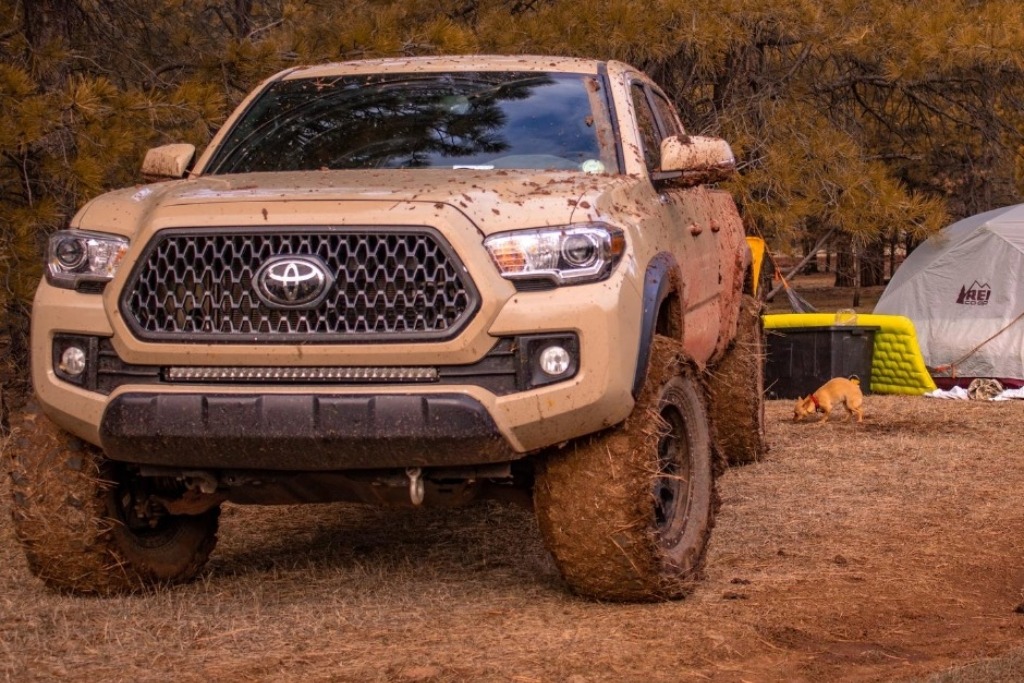
Why It Matters:
- Intense UV Radiation
Higher elevations mean thinner atmosphere and stronger UV exposure, accelerating paint oxidation, fading, and clear coat breakdown, especially on darker or older vehicles.
- Winter Road Treatments
Colorado winters bring sand, gravel, and magnesium chloridefor de-icing. These materials may help with traction, but they blast your paintwith abrasive debris and corrosive chemicals.
- Mountain Roads and Rural Terrain
Winding roads, gravel shoulders, and unpaved routes increase your risk of rock chips and impact damage, particularly along the lower bumper, rocker panels, and fenders.
- Seasonal Extremes
From hot summers to freezing winters, your vehicle expands and contracts, collecting a wide range of contaminants that can cause stress on the paint and protective coatings.
In short, Colorado’s environment demands more than just a surface-level solution; it requires a multi-layered defense built for both beauty and durability.
Get a Free PPF Quote for Your Vehicle
Ready to protect your investment? Click below to get a personalized paint protection film quote from Elite Auto PRO.
Request Your Free Estimate NowBest Practices for Long-Term Protection
Investing in ceramic coating or PPF is just the first step; proper care and maintenanceare key to preserving that investment and keeping your vehicle looking its best for years.
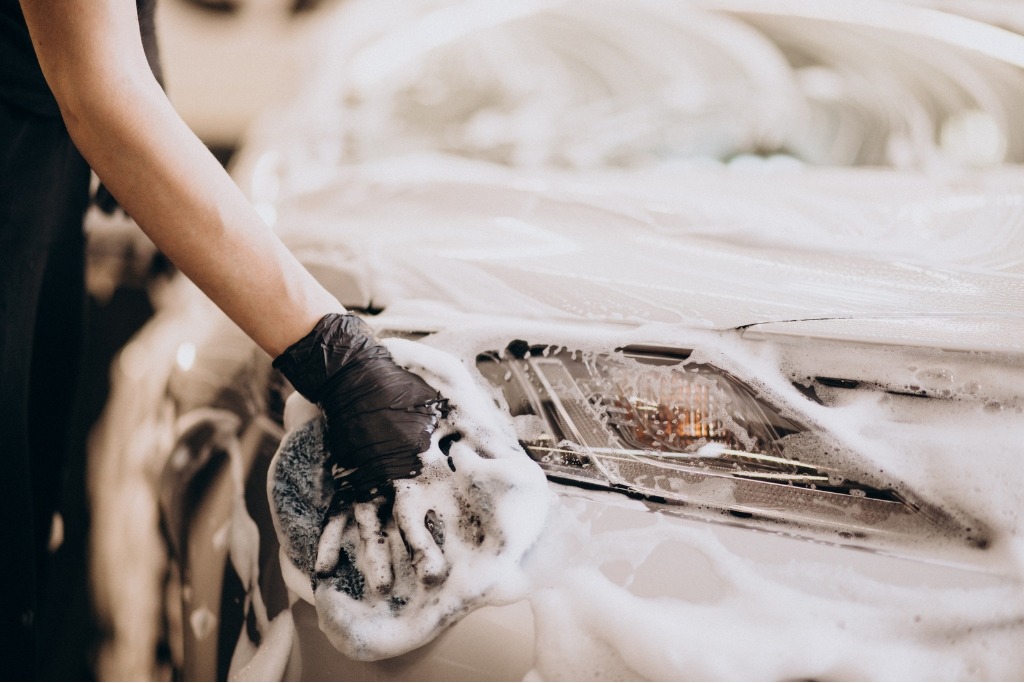
Here’s how to maintain peak performance:
- Avoid Automatic Brushes
Those spinning bristles may be fast, but they’re harsh on coatings and films. Instead, opt for touchless washes or hand washingwith microfiber mitts to prevent micro-scratches and swirl marks.
- Use pH-Neutral Cleaning Products.
Harsh soaps can strip protective layers or degrade the coating’s performance. Stick with pH-balanced car shampoosand avoid products with waxes, as they can cause buildup on ceramic surfaces.
- Inspect and Clean Regularly
After long trips, especially in snowy or gravelly areas, inspect high-impact zones, such as bumpers and side skirts. Spot clean any bird droppings, sap, or road salt quickly to prevent etching.
- Ask About Layering and Reapplication
Over time, coatings can wear. Our technicians can safely remove old ceramic coatings and apply a fresh layer for renewed protection and shine, without the need to start from scratch.
- Apply Ceramic Boosters
To extend the life of your coating and maintain its hydrophobic properties, consider using a ceramic spray boosterevery few months. These quick applications help rejuvenate the surface and maintain that slick, glossy feel.
Curious about maintenance plans or pricing? Discover our comprehensive ceramic coating services in Colorado Springsfor more information and options.
Get a Free PPF Quote for Your Vehicle
Ready to protect your investment? Click below to get a personalized paint protection film quote from Elite Auto PRO.
Request Your Free Estimate NowStill Wondering If Ceramic Coating Is Enough? Let's Talk.
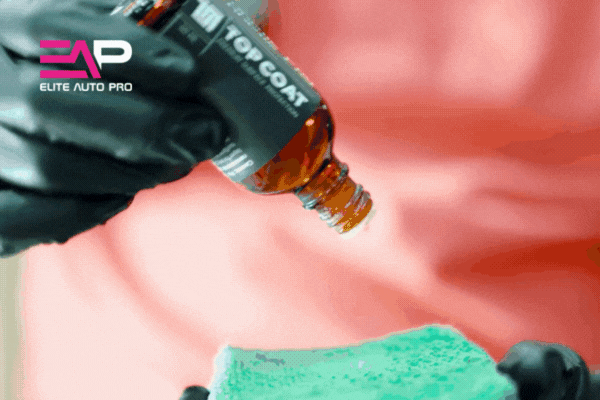
At Elite Auto PRO, we understand that every vehicle and every driver is different. That’s why we offer transparent, personalized recommendationsrather than one-size-fits-all packages. Whether you’ve just bought a brand-new vehicle or want to refresh the look of your daily driver, we’ll walk you through the best options, from precision-applied ceramic coatings to full-body PPF installations.
Our certified technicianstake pride in craftsmanship, using only top-tier products backed by factory warranties. We never upsell or cut corners, just honest advice and results you can see and feel.
As a veteran-owned, BBB-accredited studio, we’re proud to serve Colorado Springs with integrity, attention to detail, and unmatched customer care.
Ready to protect your investment from rock chips, weather, and wear?Contact us todayfor a custom consultation and quote, and drive with peace of mind, no matter where Colorado roads take you.
So, Does Ceramic Coating Protect Against Rock Chips?
No, ceramic coating alone does not protect against rock chips.But that doesn’t mean it’s not valuable. As part of a layered defense strategy, especially when paired with Paint Protection Film, ceramic coating plays a critical role in preserving your vehicle’s appearance and resale value in Colorado’s rugged conditions.
Seeking genuine ceramic coating for rock chip protection? Combine technologies and trust a local expert. Visit Elite Auto PROto explore your best protection package today.
Common Questions: Ceramic Coating & Rock Chips
What is the best protection against rock chips?
Paint Protection Film (PPF) is the most effective solution; it serves as a physical barrier that absorbs and deflects impact.
Why doesn't ceramic coating prevent rock chips?
It’s too thin and rigid. Ceramic coating forms a hard layer, but it lacks the thickness or flexibility needed to absorb rock impacts.
Does ceramic coating protect paint from chipping?
No. It protects against minor scratches, chemical stains, and UV rays, but notfrom chipping caused by flying debris.
Why combine ceramic coating with PPF?
This combo delivers the best of both worlds: PPF stops physical damage, and ceramic coating adds shine and chemical resistance. Think of it as a shield with a polished finish.
Is ceramic coating still worth it if it doesn't prevent chips from forming?
Absolutely. It helps maintain your vehicle’s appearance, simplifies cleaning, protects from sun and chemical exposure, and boosts resale value.
Elite Auto Pro in Colorado Springs: Ceramic Coatings, PPF & Tinting
Address:
Address: 949 Elkton Dr Unit B, Colorado Springs, CO 80907, United States
Phone:
Phone: +1 719-375-1252
Google Review
Reviews from the web

